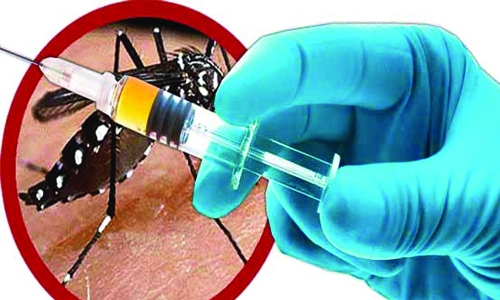
Sanofi has agreed to reimburse the Philippines for unused doses of an anti-dengue vaccine that has been linked to the deaths of children.
The French pharmaceutical giant denied the refund was related to safety issues, but was instead intended to improve ties with Philippine health authorities. The Department of Health is currently investigating the deaths of 14 children injected with Dengvaxia.
The sale and distribution of the drug was halted last month after the firm warned that it could worsen the symptoms for vaccinated people who went on to contract the mosquito-borne disease for the first time.
Health Secretary Francisco Duque told AFP he was due to meet Sanofi representatives tomorrow (Tuesday, January 16) to discuss the refund, as well as a demand that the company test all 837,000 children who were vaccinated.
The health department is also asking the company’s vaccine unit Sanofi Pasteur to refund 1.4 billion pesos for unused supplies of the drug.
“Our decision to reimburse for unused doses is not related to any safety or quality issue with Dengvaxia,” said a statement from the company, which did not disclose the agreed amount.
“Rather Sanofi Pasteur hopes that this decision will allow us to be able to work more openly and constructively with the [health department] to address the negative tone towards the dengue vaccine in the Philippines today.”
Philippine authorities have been investigating the deaths of 14 children who were among those given Dengvaxia last year in the world’s first public immunisation programme against dengue.
After the programme began, Sanofi Pasteur released findings of a new study that showed Dengvaxia could lead to more severe infections.
The disclosure triggered a public furore, with some parents blaming the vaccine for their children’s deaths.
Duque said he would ask the firm to provide testing kits to determine which of the injected Filipino children had no prior exposure to the disease. Sanofi would be asked either to provide testing kits or finance the testing, he added.
The firm maintains that no death has been found to have been caused by Dengvaxia. “Sanofi Pasteur strongly believes that this tone is due to a misunderstanding of the benefits and risks associated with the dengue vaccine,” its statement said.
It cited “a lack of awareness amongst the general public, particularly parents of vaccinated children, that the overall benefit of dengue vaccination remains positive in high endemic countries like the Philippines”.
